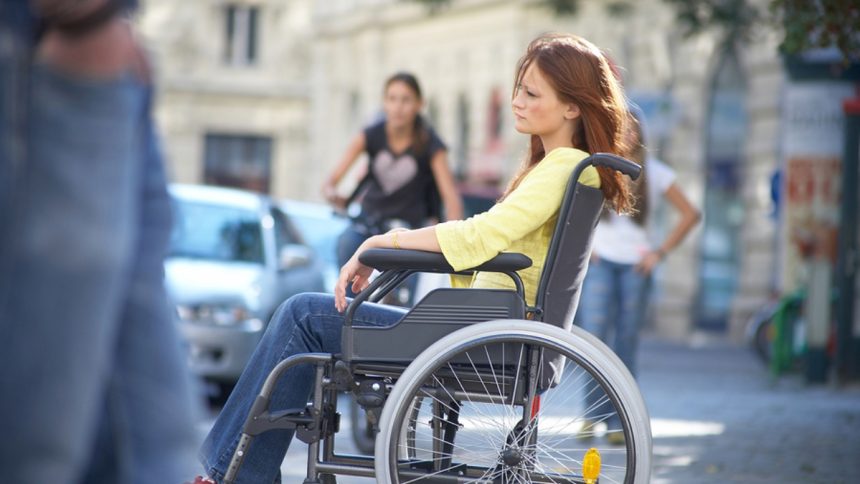Car accidents are traumatic events that can have severe and lasting impacts on those involved. Among the most devastating consequences of such accidents is paralysis, which can be either temporary or permanent. Understanding how car accidents lead to paralysis is crucial for victims and their families as they navigate recovery and seek justice.
For those affected by paralysis due to a car accident, consulting Warhawk car accident lawyers can provide essential legal support and help secure the compensation needed for medical care and rehabilitation. This article explores the mechanisms through which car accidents cause paralysis and the distinctions between temporary and permanent paralysis.
Mechanisms of Injury Leading to Paralysis
Paralysis caused by car accidents usually results from significant damage to the spinal cord or brain. When high-impact collisions occur, the vertebrae can fracture, dislocate, or exert pressure on the spinal cord, disrupting the signals between the brain and the body. This disruption can then lead to the loss of both motor function and sensation below the level of the injury.
Moreover, traumatic brain injuries (TBI) resulting from car accidents can also lead to paralysis. Damage to specific regions of the brain responsible for controlling movement can interfere with the body’s ability to move and function normally. It is crucial to comprehend these underlying mechanisms to effectively diagnose and treat paralysis.
Temporary Paralysis
Temporary paralysis, also known as transient paralysis, occurs when there is a temporary disruption in the communication between the brain and muscles. This can result from swelling, inflammation, or compression of the spinal cord or nerves due to the accident. With appropriate medical intervention, such as surgery, physical therapy, and medications to reduce swelling, function may be restored over time.
The recovery process for temporary paralysis varies depending on the severity of the injury and the promptness of treatment. Early and aggressive rehabilitation can significantly improve the chances of regaining mobility and function, emphasizing the importance of timely medical care.
Permanent Paralysis
Permanent paralysis occurs when irreversible damage occurs to the spinal cord or brain. It can result from severe spinal cord injuries, where the nerve fibers are completely severed or the spinal cord is extensively damaged. Unlike temporary paralysis, permanent paralysis often leads to lifelong disability and requires ongoing medical care and support.
The impact of permanent paralysis extends beyond physical limitations, affecting emotional well-being, independence, and quality of life. Victims may require assistive devices, home modifications, and personal care assistance to manage daily activities, highlighting the need for comprehensive support and resources.
Diagnosing Paralysis
Diagnosing paralysis involves a thorough medical evaluation, including imaging tests such as X-rays, MRI, and CT scans to assess the extent of spinal cord or brain injury. Neurological examinations also evaluate motor and sensory function, reflexes, and muscle strength.
Accurate diagnosis is crucial for developing an effective treatment plan and determining the prognosis. Early diagnosis and intervention can improve outcomes, particularly for those with temporary paralysis, by addressing underlying issues and preventing further complications.
Treatment and Rehabilitation
Treatment for paralysis caused by car accidents depends on the severity and type of injury. For temporary paralysis, treatments may include medications to reduce inflammation, physical therapy to restore movement, and surgical interventions to relieve pressure on the spinal cord or repair damaged vertebrae.
For permanent paralysis, the focus shifts to managing symptoms and improving quality of life. This may involve physical therapy to maintain muscle strength, occupational therapy to enhance independence in daily activities, and psychological support to address the emotional impact of paralysis. Advanced technologies such as robotic exoskeletons and neural implants offer new hope for improving mobility and function in some patients.
Legal Considerations for Paralysis Victims
Victims of paralysis resulting from car accidents often face significant medical expenses, loss of income, and long-term care costs. Pursuing legal action with the assistance of Oklahoma City car accident lawyers can help victims secure compensation for their losses. Legal claims may cover medical bills, rehabilitation costs, lost wages, pain and suffering, and other related expenses.
Experienced car accident lawyers can provide valuable guidance in navigating the legal process, gathering evidence, and advocating for fair compensation. Legal representation is crucial for ensuring that victims’ rights are protected and receive the financial support needed for their recovery and long-term care.
The Emotional Impact of Paralysis
The emotional impact of paralysis can be profound, affecting both victims and their families. Here are some key points to consider:
- Feelings of frustration, depression, and anxiety: Adjusting to life with a disability often brings a range of challenging emotions. Individuals may feel frustrated by their limitations, depressed about their circumstances, and anxious about the future.
- Challenges of living with a disability: Paralysis can alter every aspect of daily life, from mobility and independence to social interactions and career opportunities. These changes can lead to a sense of loss and helplessness.
- Support from mental health professionals: Therapy and counseling are essential for helping individuals navigate their emotions and develop coping strategies. Mental health professionals can provide the tools to build resilience and maintain a positive outlook.
- Peer support groups: Connecting with others who share similar experiences can be immensely rewarding. Peer support groups provide a sense of community, empathy, and shared insights, helping individuals feel less isolated.
- Family support: Family members’ roles are crucial in providing emotional and practical support. Family involvement can strengthen the individual’s support system and contribute to a more positive adjustment process.
Preventive Measures
Preventing paralysis from car accidents involves promoting road safety and implementing measures to reduce the risk of severe injuries. This includes enforcing seatbelt use, encouraging the use of airbags, and promoting safe driving practices such as avoiding distractions, adhering to speed limits, and not driving under the influence of alcohol or drugs.
Vehicle safety features, such as advanced driver-assistance systems (ADAS) and crash avoidance technologies, can also significantly reduce the severity of injuries when accidents do occur. Public awareness campaigns and education about road safety can further contribute to preventing car accidents and their devastating consequences.
Lynn Martelli is an editor at Readability. She received her MFA in Creative Writing from Antioch University and has worked as an editor for over 10 years. Lynn has edited a wide variety of books, including fiction, non-fiction, memoirs, and more. In her free time, Lynn enjoys reading, writing, and spending time with her family and friends.















